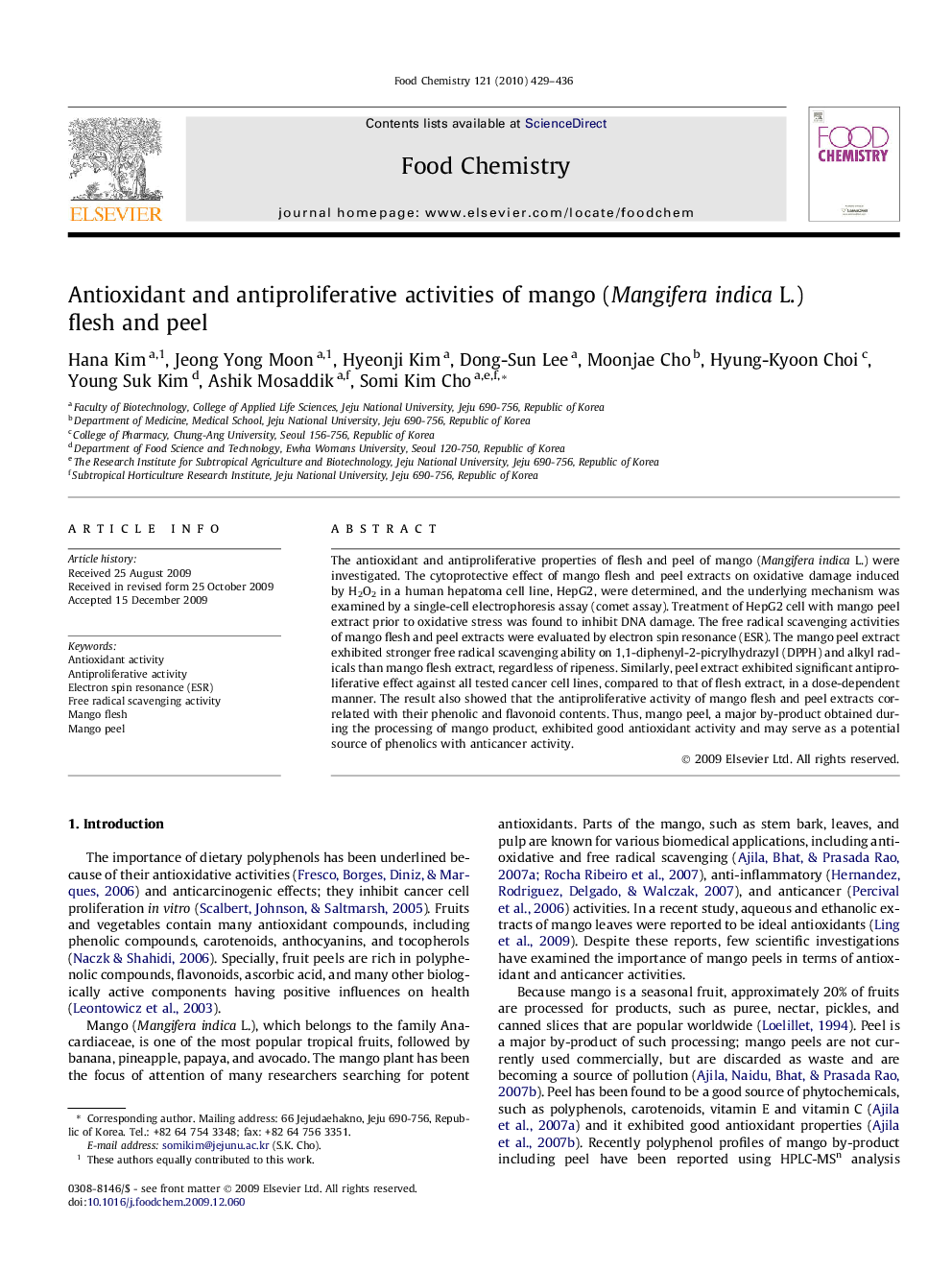| Article ID | Journal | Published Year | Pages | File Type |
|---|---|---|---|---|
| 1186836 | Food Chemistry | 2010 | 8 Pages |
The antioxidant and antiproliferative properties of flesh and peel of mango (Mangifera indica L.) were investigated. The cytoprotective effect of mango flesh and peel extracts on oxidative damage induced by H2O2 in a human hepatoma cell line, HepG2, were determined, and the underlying mechanism was examined by a single-cell electrophoresis assay (comet assay). Treatment of HepG2 cell with mango peel extract prior to oxidative stress was found to inhibit DNA damage. The free radical scavenging activities of mango flesh and peel extracts were evaluated by electron spin resonance (ESR). The mango peel extract exhibited stronger free radical scavenging ability on 1,1-diphenyl-2-picrylhydrazyl (DPPH) and alkyl radicals than mango flesh extract, regardless of ripeness. Similarly, peel extract exhibited significant antiproliferative effect against all tested cancer cell lines, compared to that of flesh extract, in a dose-dependent manner. The result also showed that the antiproliferative activity of mango flesh and peel extracts correlated with their phenolic and flavonoid contents. Thus, mango peel, a major by-product obtained during the processing of mango product, exhibited good antioxidant activity and may serve as a potential source of phenolics with anticancer activity.
